Las pruebas practicadas de común acuerdo por las partes. un camino en construcción
Palabras clave:
Pruebas extraprocesales, pruebas de común acuerdo, debido proceso de duración razonableResumen
Pese a que el modelo procesal actual invita a que las distintas actuaciones procesales se realicen en audiencia de manera oral, con privilegio de la inmediación, la concentración y la publicidad, ello no implica que todas las pruebas sobre las que se funda la decisión de fondo deban practicarse de manera intraprocesal y bajo la dirección de la autoridad judicial que resolverá el asunto.
Claramente el mismo legislador ha dispuesto varias excepciones a la regla de la inmediación, las cuales tienen como soporte el derecho al debido proceso. Sostener que la inmediación constituye un principio de carácter absoluto implicarÃa cercenar la posibilidad de practicar pruebas por fuera del proceso (pruebas extraprocesales), allegar pruebas practicadas en otros procesos (prueba trasladada), o de comisionar para la práctica de pruebas, lo que se traducirÃa en la vulneración del derecho a la prueba, garantÃa esencial que hace parte del derecho al debido proceso.
Dicho lo anterior cabe preguntarse si resulta legÃtimo que las partes puedan realizar un ejercicio de recaudo y práctica de pruebas sin la presencia del juez que eventualmente conocerá el asunto al cual está soportado en tales pruebas. En las siguientes lÃneas expondré las razones por las que considero que sà resulta legÃtima la práctica probatoria en cabeza de las partes, desde luego, en un escenario extraprocesal y sin intervención de autoridad judicial.
Si bien la autoridad judicial tiene la responsabilidad de emitir decisiones de fondo que le pongan fin a la litis en un plazo razonable (CGP, art. 121), las partes también tienen el deber de colaborar con la actividad judicial suministrando información de calidad al juez, esto es, las pruebas que quieran hacer valer, debidamente controvertidas, a fin de que la actividad probatoria intraprocesal sea mÃnima y sólo se centre en aquellas situaciones que definitivamente no pudieron ser evacuados por las partes por fuera del escenario judicial. Sólo asà podremos garantizar el cumplimiento del término razonable de duración del proceso y de paso, del derecho a la tutela judicial efectiva.
Citas
ÃLVAREZ GÓMEZ, MARCO ANTONIO. Ensayos sobre el Código General del Proceso. Volumen III, Medios Probatorios. Bogotá, editorial Temis, 2017. https://lijursanchez.com/wp-content/uploads/2021/03/Ensayos.pdf
CRUZ TEJADA, HORACIO. “Una mirada reflexiva a la sentencia anticipada en el Código General del Proceso†En: XXXVIII congreso colombiano de derecho procesal. Bogotá, Universidad Libre e Instituto Colombiano de Derecho Procesal, 2017. https://es.scribd.com/document/412384641/Mirada-Sent-Antic-H-Cruz
DELLEPIANE, ANTONIO. Nueva teorÃa de la prueba. Bogotá, Editorial Temis, 10ª edición, 2009. https://libreriatemis.com/product/nueva-teoria-de-la-prueba-2/
GIACOMETTE FERRER, ANA. “Pruebas preconstituidas, anticipadas o extraprocesalesâ€. En: El proceso civil a partir del Código General del Proceso. CRUZ TEJADA, HORACIO (coord.). Bogotá, ediciones Uniandes, 2ª edición, 2017. https://es.scribd.com/document/486035463/Pruebas-preconstituidas-Ana-Giacomette-1-doc
NISIMBLAT MURILLO, NATTAN. “Un proceso por audiencias o un proceso con audiencias. Desmitificando algunos principios en el Código General del Proceso en Colombiaâ€. En: XXXIX Congreso colombiano de derecho procesal. Bogotá, Universidad Libre e Instituto Colombiano de Derecho Procesal, 2018. https://www.academia.edu/37357828/UN_PROCESO_POR_AUDIENCIAS_O_UN_PROCESO_CON_AUDIENCIAS_DESMITIFICANDO_ALGUNOS_PRINCIPIOS_EN_EL_C%C3%93DIGO_GENERAL_DEL_PROCESO_EN_COLOMBIA
ROJAS GÓMEZ, MIGUEL ENRIQUE. Lecciones de Derecho Procesal. Tomo 3. Pruebas Civiles. Bogotá, editorial Esajú, 2ª edición, 2018. https://libreriatemis.com/product/lecciones-de-derecho-procesal-tomo-iii/
TEJEIRO DUQUE, OCTAVIO AUGUSTO. “Principios generales del nuevo Código General del Procesoâ€. En: El proceso civil a partir del Código General del Proceso. CRUZ TEJADA, HORACIO (coord.). Bogotá, Ediciones Uniandes, 2ª edición, 2017. https://www.jstor.org/stable/10.7440/j.ctt1zw5tc5





